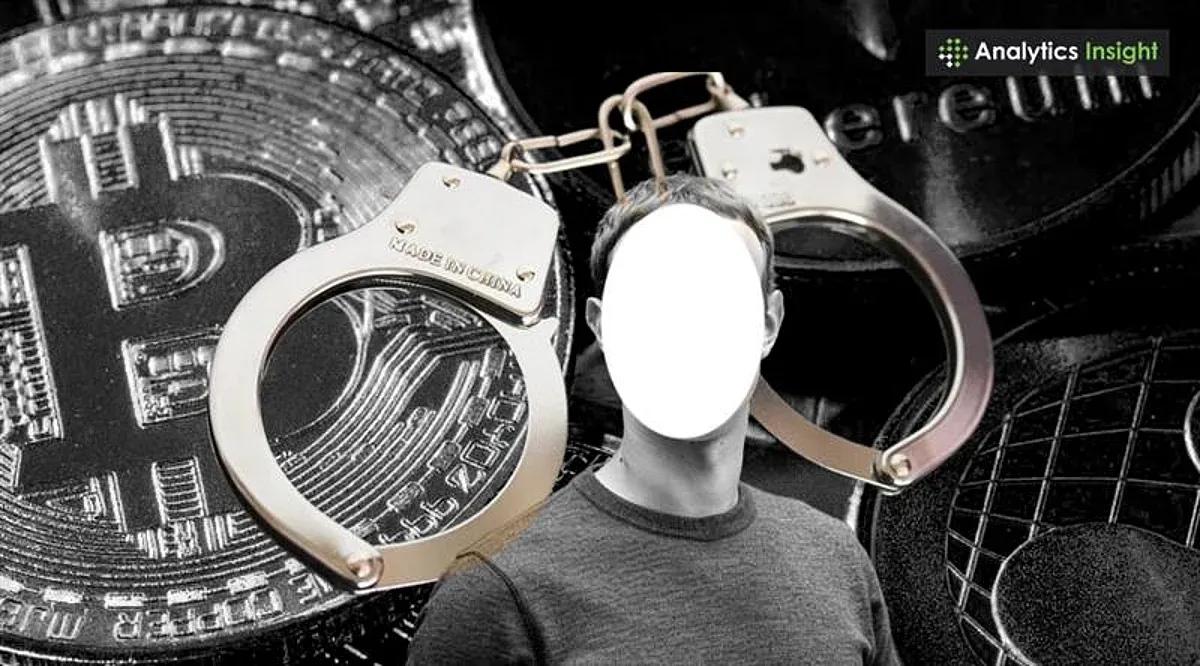Arizona Man Pleads Guilty in $13M Crypto Ponzi Scheme Involving Fake AI Trading Bots
2 Sources
2 Sources
[1]
Arizona Man Pleads Guilty in $13M Crypto Ponzi Scheme, Faces Up to 15 Years - Decrypt
Victims were duped twice, first through bogus crypto investments, then again by being charged fees for fake investigations into the very scams that stole their money. A man who posed as a crypto-savvy government official and helped engineer a $13 million Ponzi scheme has admitted guilt in federal court. Vincent Anthony Mazzotta Jr. pleaded guilty Monday to one count of money laundering and one count of conspiracy to obstruct justice, according to a statement by the U.S. Attorney's Office for the Central District of California. Mazzotta helped target victims through a web of crypto investment companies with names such as Mind Capital and Cloud9Capital while working alongside Australian co-defendant David Gilbert Saffron from 2017 to 2023. The pair falsely claimed to use automated trading bots powered by artificial intelligence to generate high crypto trading returns that never materialized. An indictment from December 2023 revealed Mazzotta operated under several aliases, including "Vincent Midnight," "Delta Prime," and "Director Vinchenzo," while communicating with victims. The indictment detailed how the conspirators spent investor funds on luxury items, including private jet charters, Hollywood Hills mansion rentals, personal security details, and high-end hotel accommodations. Mazzotta and Saffron also established the Federal Crypto Reserve, a fictitious entity designed to appear as a government-backed crypto recovery service. Victims who had already lost money in the initial scheme were then charged additional fees for "investigations" into the very companies that had stolen their funds. Experts told Decrypt that the Federal Crypto Reserve tactic represents a particularly cruel form of secondary victimization that exploits victims' desperation and shame after losing money to the initial scam. "Crypto recovery scams are very common with scammers targeting victims by claiming they can help recover stolen crypto," said Karan Pujara, founder of scam defense platform ScamBuzzer. "The hope of getting their money back and guilt from making a mistake make victims vulnerable," Pujara added, noting that their emotional state can "lead them to another error, knowingly or unknowingly, causing them to fall for secondary recovery scams." The expert advised victims approached by recovery services to "not respond, just block" any communications, as engaging can expose victims to additional social engineering attacks. Pujara advised investors evaluating AI trading services to apply a simple logic test. "If the returns they are offering are too good to be true, then it is a scam," he said. "If someone truly had such a profitable algorithm, they wouldn't be selling subscriptions for just a few hundred dollars." Mazzotta is scheduled to be sentenced on December 15 and faces up to 15 years in federal prison. The case comes amid a surge in crypto-related scams targeting a variety of different communities. Last week, a Denver grand jury indicted Colorado pastor Eli Regalado and his wife on 40 felony charges for allegedly orchestrating a $3.4 million crypto scheme through their online church, promising "divine guidance" for their worthless INDXcoin.
[2]
Arizona Man Pleads Guilty in $13 Million Crypto Scam Using AI & Fake Agency
$13 million Crypto Ponzi Exposed: AI Bots and Fake Agency Used in Scam In a major crypto fraud case, Vincent Anthony Mazzotta Jr., a 36-year-old man from Arizona, has pleaded guilty to running a complex that misled investors through the use of fraudulent AI trading bots and a fake crypto recovery agency. The plea, entered in a California federal court, marks the culmination of a years-long investigation into a multi-layered scam that operated between 2017 and 2023. Crypto Ponzi scheme operations are becoming increasingly sophisticated, luring investors with false promises of high returns.
Share
Share
Copy Link
Vincent Anthony Mazzotta Jr. admits to orchestrating a complex $13 million crypto fraud scheme that used false claims of AI-powered trading bots and a fictitious government agency to dupe investors twice.
Guilty Plea in $13M Crypto Ponzi Scheme
Vincent Anthony Mazzotta Jr., a 36-year-old Arizona resident, has pleaded guilty to orchestrating a complex $13 million cryptocurrency Ponzi scheme that operated from 2017 to 2023. The case, heard in a California federal court, involves charges of money laundering and conspiracy to obstruct justice
1
.
Source: Analytics Insight
The Scam: AI Trading Bots and Fake Companies
Mazzotta, along with his Australian co-defendant David Gilbert Saffron, targeted victims through a network of fraudulent crypto investment companies, including Mind Capital and Cloud9Capital. They falsely claimed to use AI-powered automated trading bots to generate high returns on cryptocurrency investments
1
.The scammers operated under various aliases, with Mazzotta using names like "Vincent Midnight," "Delta Prime," and "Director Vinchenzo" to communicate with victims. The pair spent investor funds lavishly on luxury items such as private jet charters, Hollywood Hills mansion rentals, and high-end hotel accommodations
1
.The Federal Crypto Reserve: A Double Deception
In a cruel twist, Mazzotta and Saffron established the Federal Crypto Reserve, a fictitious entity designed to appear as a government-backed crypto recovery service. This secondary scam targeted victims who had already lost money in the initial scheme, charging them additional fees for fake "investigations" into the very companies that had defrauded them
1
.Expert Insights on Crypto Scams
Karan Pujara, founder of scam defense platform ScamBuzzer, explained to Decrypt that crypto recovery scams are common, exploiting victims' desperation and shame after losing money to initial scams. Pujara advised victims to ignore and block any communications from supposed recovery services, as engaging can expose them to further social engineering attacks
1
.Related Stories
Red Flags and Investor Advice
Experts warn investors to be wary of AI trading services promising unrealistic returns. Pujara suggests applying a simple logic test: "If the returns they are offering are too good to be true, then it is a scam. If someone truly had such a profitable algorithm, they wouldn't be selling subscriptions for just a few hundred dollars"
1
.
Source: Decrypt
Legal Consequences and Broader Context
Mazzotta is scheduled for sentencing on December 15 and faces up to 15 years in federal prison
1
2
.This case is part of a larger trend of increasing sophistication in crypto-related scams. Recently, a Denver grand jury indicted a Colorado pastor and his wife on 40 felony charges for allegedly running a $3.4 million crypto scheme through their online church, promising "divine guidance" for their worthless INDXcoin
1
.As cryptocurrency adoption grows, these incidents underscore the need for investor education and robust regulatory frameworks to protect against fraudulent schemes in the rapidly evolving digital asset landscape.
References
Summarized by
Navi
[2]
Related Stories
Spanish Police Bust $20 Million AI-Powered Crypto Investment Scam Ring
08 Apr 2025•Technology

Crypto scams surge to $17 billion in 2025 as AI-powered fraud tactics dominate the landscape
14 Jan 2026•Business and Economy

Europol Dismantles $540 Million Cryptocurrency Fraud Ring: AI's Role in Sophisticated Scams
01 Jul 2025•Technology

Recent Highlights
1
ByteDance's Seedance 2.0 AI video generator triggers copyright infringement battle with Hollywood
Policy and Regulation

2
Demis Hassabis predicts AGI in 5-8 years, sees new golden era transforming medicine and science
Technology

3
Nvidia and Meta forge massive chip deal as computing power demands reshape AI infrastructure
Technology





